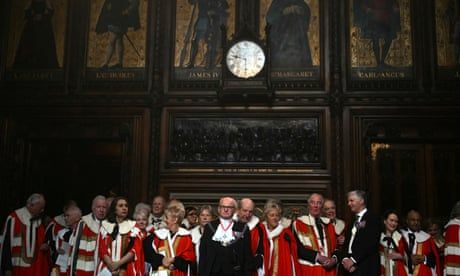
Over the holidays, this column will explore next year’s urgent issues. Today, why it is easier to be a constitutional reformer in opposition than in office
Next year, the remaining hereditary members of the House of Lords will finally lose their right to sit in the upper house. When that happens, a democratic milestone in British parliamentary history will unquestionably have been reached. But a milestone along a road to what eventual constitutional destination? We do not know the answer to that, because the government will not say. The government itself may not be sure. As on many other issues, Labour’s true direction of travel on House of Lords reform remains obscure.
One thing, however, can already be said. Last week, Downing Street published a list of 38 new life peers. It was one of the longest such lists of the modern era. It contained 30 new Labour peers, six Conservatives and two Liberal Democrats. Many were former MPs. The overall aim, as the nominations made extremely clear, was to boost Labour’s numbers in the Lords at the expense of the Conservatives.
Continue reading...